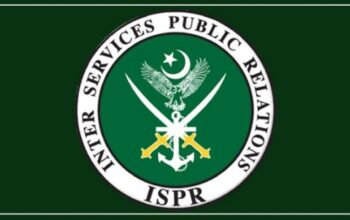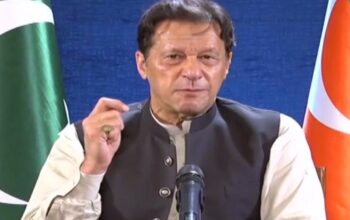By Staff Reporter
ISLAMABAD: Pakistan has dispatched a high-level delegation to the United States to counter India’s rising influence, intensifying a diplomatic showdown between the two nuclear-armed rivals amid escalating regional tensions.
The effort, which began Sunday in New York aims to sway global and U.S. policymakers, reflects Islamabad’s alarm over New Delhi’s aggressive lobbying in Washington and its bid to shape the international perception of their long-standing rivalry.
The Pakistani delegation, a powerhouse of diplomatic experience kicking off what Dawn newspaper describes as a “broad-based engagement campaign.”
Comprising two former foreign ministers, two former foreign secretaries, two former ambassadors to the United States, and a serving federal minister, the group is packed with heavyweights: Bilawal Bhutto-Zardari, chairman of the Pakistan Peoples Party and a former foreign minister; Hina Rabbani Khar, another ex-foreign minister; Senator Sherry Rehman, a seasoned diplomat; Jalil Abbas Jilani and Tehmina Janjua, both former foreign secretaries; and current federal ministers Mussadik Malik, Khurram Dastgir, Bushra Anjum Butt, and Faisal Sabzwari.
Their itinerary is ambitious. The delegation is scheduled to meet UN Secretary-General António Guterres, the president of the UN General Assembly, and ambassadors from all five permanent members of the Security Council. They will also address a joint session of envoys from the Organisation of Islamic Cooperation (OIC), signaling Pakistan’s intent to rally support among Muslim-majority nations.
On June 3, the group shifts its focus to Washington, where it plans to engage U.S. Secretary of State Marco Rubio, senior administration officials, lawmakers, think-tank analysts, and top media outlets. Pakistani officials say the meetings will center on regional security concerns and what Islamabad calls India’s “escalatory moves” in the region.
“This is no longer just about border skirmishes,” a senior Pakistani diplomat said told Dawn. “This is about shaping the international narrative to reflect ground realities.”
The diplomatic push is part of a two-pronged approach blending official and informal engagements. A second delegation, expected to be led by Commerce Minister Jam Kamal, will soon arrive in Washington for trade talks with U.S. officials, underscoring Pakistan’s efforts to deepen economic ties amid the geopolitical jostling.
India, meanwhile, is not standing still. A delegation led by Congress MP Shashi Tharoor is also due in Washington on June 3, hot on the heels of a three-day visit by Indian Foreign Secretary Vikram Misri that wrapped up last week. The overlapping schedules highlight the intensifying competition between the two South Asian rivals for sway in the U.S. capital.
In Islamabad, officials are increasingly worried that New Delhi is working to frame the recent spike in tensions, sparked by cross-border incidents and heated rhetoric, in a way that could revive international scrutiny of Pakistan. They point to India’s efforts to revisit Pakistan’s status with the Financial Action Task Force (FATF), the global anti-money laundering watchdog, as a prime example.
“This is a political campaign masquerading as financial oversight,” one Pakistani official said, referring to India’s push on the FATF front. Pakistan exited the agency’s “grey list” in 2022 after implementing a sweeping reform program to address concerns over money laundering and terrorism financing. “There is no technical basis for reopening that file,” the official added.
The Pakistani delegation is leaning hard on a message of transparency and restraint. “We responded with maturity when provoked. That’s the story we are telling here — with facts, not slogans,” said one former diplomat in the group, who spoke on background to outline their strategy.
Senator Sherry Rehman, a key player in the delegation, emphasized that Pakistan is not just playing defence. “We have our own agenda to advance, but yes, when Indian allegations are brought up, make no mistake, we will use forensic chapter and factual verse. Myth will not be allowed to become the message on Pakistan this time,” she said.
The stakes are high for Islamabad, which sees India’s growing lobbying presence in Washington as a threat to its own diplomatic standing. Pakistani officials argue that New Delhi’s narrative, casting Pakistan as the aggressor, risks overshadowing what they describe as the “ground realities” of a complex regional dynamic.
Beyond the U.S., Pakistan is also strengthening ties elsewhere. In a separate development, Foreign Minister Ishaq Dar and British Foreign Secretary David Lammy agreed to deepen cooperation in multilateral forums, particularly at the UN Security Council. The understanding came during a recent conversation following Lammy’s first official visit to Pakistan, where he met senior officials amid the rising tensions with India. The two diplomats plan to reconnect later this month on the sidelines of high-level UN events in New York.
Copyright © 2021 Independent Pakistan | All rights reserved




